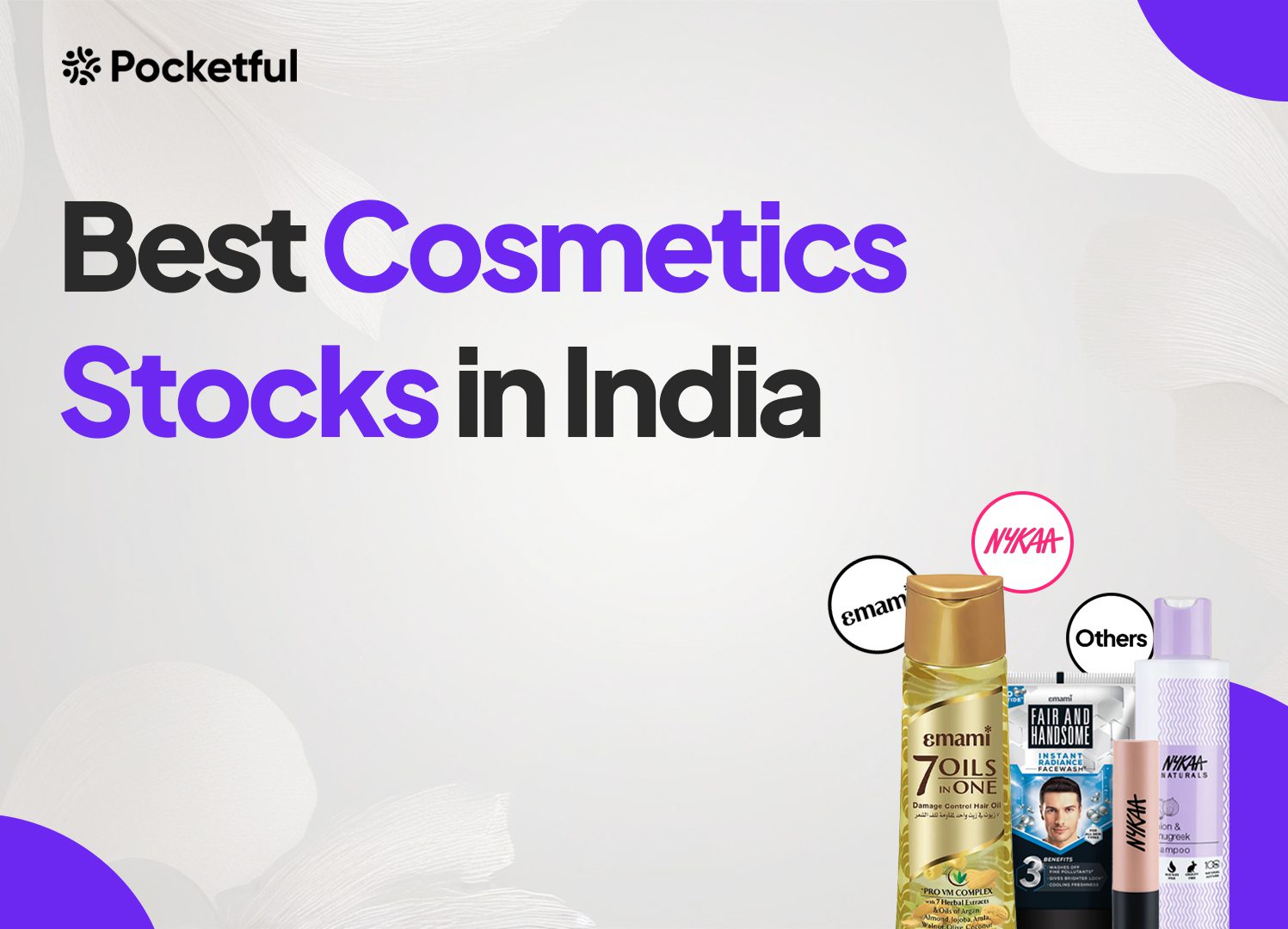| Type | Description | Contributor | Date |
|---|---|---|---|
| Post created | Pocketful Team | Aug-13-24 | |
| Update market price and add new links | Nisha | Sep-22-25 |
Read Next
- Best Commodities to Trade in India
- Best Cyclical Stocks in India 2026
- How to Check the Purity of 20-Carat Gold: Easy Methods & Tips
- Why Are Silver Prices Rising in India?
- Difference Between Hallmark Gold, KDM Gold and BIS 916
- Why Are Gold Prices Rising in India?
- 1 Tola Gold in India: How Many Grams, Price & Investment Insights
- 22K vs 24K Gold: Which Is Better for Jewellery & Investment?
- Will the Silver Rate Decrease in the Coming Days in India?
- Will the Gold Rate Decrease in the Coming Days in India 2026?
- Best Bond ETFs in India 2026
- Best ETF Platforms for Trading and Investment in India 2026
- List of Best Index ETFs in India
- Best Packaging Stocks in India 2026
- Best Short-Term Investments in 2026
- Natural Gas Price Predictions for Next 5 Years in India
- What Is Common Stocks?
- Best Low-Risk Stocks in India 2026
- Top Assets by Market Cap Worldwide
- Best Banking Stocks in India 2026
- Blog
- best cosmetics stocks in india
List of Best Cosmetics Stocks in India 2026

India’s beauty and personal care industry has witnessed phenomenal growth in recent years, driven by rising disposable income, increasing urbanization, and a growing young population. This surge has made cosmetics a lucrative investment option. For investors seeking opportunities, beauty brand stocks offer great potential for returns. India has a plethora of cosmetic companies, but identifying the best companies can be challenging.
In today’s blog, we will learn about some of the best cosmetic stocks for 2024 based on market capitalization and 1-year returns.
Overview of the Cosmetics Industry

From skincare and makeup to haircare and fragrance, there is no shortage of options available to consumers. As trends evolve and innovations emerge, the cosmetics industry continuously adapts to meet the ever-changing needs and desires of individuals seeking to express their unique style and self-care. For investors, the best beauty stocks in India present a compelling opportunity to capitalize on this thriving sector. As consumer awareness grows, there is an increasing demand for natural and organic products in the cosmetics industry. This has led to the development of innovative formulations that focus on sustainability and eco-friendly practices. Product categories include color cosmetics, skincare, haircare, fragrances, and personal care. The industry has two channels: organized and unorganized. The organized market represents 25% of the total market, while online stores account for only 2% of that. This segment sells premium and luxury brands through different channels. The unorganized market represents 75% and offers mass-market products from brands such as Lakme, L’oreal, etc. India’s cosmetics industry is on the verge of explosive growth and is expected to grow at a CAGR of 10.91% in the next five years.
Best Cosmetics Stocks Based on Market Capitalisation
The top Cosmetic stocks in 2026 are:
| S.No. | Cosmetic Stocks |
|---|---|
| 1 | Hindustan Unilever Ltd. |
| 2 | ITC Ltd. |
| 3 | Dabur India Ltd. |
| 4 | Godrej Consumer Products Ltd. |
| 5 | Procter & Gamble Hygiene and Healthcare Ltd. |
| Company | Market Capitalization (in INR Crore) | Current Market Price (in INR) | 52-Week High | 52-Week Low |
|---|---|---|---|---|
| Hindustan Unilever Ltd. | 5,58,991 | 2,379 | 2,660 | 2,044 |
| ITC Ltd. | 4,08,954 | 326 | 472 | 326 |
| Dabur India Ltd. | 89,589 | 505 | 577 | 420 |
| Godrej Consumer Products Ltd. | 1,26,299 | 1,234 | 1,309 | 980 |
| Procter & Gamble Hygiene and Health Care Ltd. | 38,989 | 12,011 | 14,904 | 11,940 |
Best Cosmetics Stocks Based on Market Capitalization
The best cosmetic stocks in India are given below, along with a brief overview:
1. Hindustan Unilever Ltd.
The Lever brothers, established by William Hesketh Lever and James Darcy Lever, first entered the Indian market in 1888 with a product known as sunlight soap. However, the soap was marked with the phrase “Made in England by Lever Brothers.”
Hindustan Vanaspati Manufacturing Company, Unilever’s first Indian subsidiary, was founded in 1931. Lever Brothers India Limited followed in 1933, and United Traders Limited followed in 1935. In 1956, these companies amalgamated to establish Hindustan Unilever Limited. The company’s headquarters is located in Mumbai.
Product Portfolio of the company is as follows:
- Home care products – Laundry detergents, fabric conditioners, dishwashing liquids, and toilet cleaners. (Surf Excel, Rin, Wheel),
- Personal care products – Soaps, shampoos, skin care products, hair care products, deodorants, oral care products, beverages, packaged foods, Water Purifier, Healthcare products, baby soaps, shampoos, and body lotions, cosmetic and beauty products
Read Also: Hindustan Unilever Case Study: Business Model, Financials, and SWOT Analysis
2. ITC Ltd.
ITC Limited is an Indian conglomerate headquartered in Kolkata, India. The company has a diversified presence across several industries, such as FMCG, hotels, information technology, packaging, paperboards, and agribusiness. The company is considered the major player in the Indian economy, exports its products to over 90 countries, and is known for its commitment.
ITC holds a rich history that traces back to 1910 as the Imperial Tobacco Company of India Limited, a subsidiary of British American Tobacco. The company initially focused on tobacco products and established its first cigarette factory in Bangalore in 1913. The name of the company was later changed to India Tobacco Company (ITC) in 1970. The company continues to innovate and expand its FMCG portfolio while focusing on sustainability initiatives.
3. Dabur India Ltd.
Dabur India Limited is an old Indian multinational company that sells consumer goods and has been around for more than 130 years. It was established in 1884 by Dr S.K. Burman, a doctor in Kolkata. The company initially aimed to make Ayurvedic medicines for common diseases such as cholera, malaria, and constipation. Dabur has grown from a small Ayurvedic pharmacy to a global powerhouse in the FMCG sector. It has transitioned from a family business to a professionally managed company. Dabur launched popular products such as Dabur Chyawanprash, which became known as a symbol of Ayurvedic health supplements. The company expanded its products to include personal care, food, and healthcare. Today, it has become a well-known company in India and several other countries, with a diverse product range that caters to the needs of different consumers.
4. Godrej Consumer Products Ltd.
Godrej Consumer Products Ltd. (GCPL) is a prominent Indian company established in 1897. Ardeshir Godrej started a lock company in 1897, laying the foundation for the Godrej Group for the Godrej Group. The consumer products business became a separate entity in 2001. The company expanded its product line beyond soaps and introduced brands like Godrej Hair Dye (1974) and Cinthol (soap launched in 1952). The company has grown through strategic acquisitions like Keyline Brands (UK) in 2005 and hair care companies in South Africa.
It offers a wide range of good quality and affordable products across home care, personal care, and hair care range. GPCL mainly generates revenue by selling FMCG products in different categories.
5. Procter & Gamble Hygiene and Health Care Ltd.
Proctor & Gamble Hygiene and Healthcare Limited is a subsidiary of the renowned global conglomerate Procter & Gamble (P&G). Although the company’s history dates back to 1837, its Indian operations in hygiene and healthcare started in 1967. The launch of the Whisper brand has brought about a revolutionary change in the feminine hygiene category in India. With brands like Olay and Old Spice, P&G has established a strong presence in the skin and personal care segment. The company has changed significantly over time to concentrate exclusively on hygiene and healthcare products. This strategic shift has made it a strong leader in the respective markets.
Read Also: Case Study on Procter & Gamble Marketing Strategy
Best Cosmetics Stocks based on 1-year Return – An Overview
The cosmetics stocks have been listed in descending order based on their 1-year returns in the table below:
| S.No. | Company | 1-Year Return |
|---|---|---|
| 1 | Jyothy Labs Ltd. | -37.62% |
| 2 | Emami Ltd. | -13.94% |
| 3 | Kaya Ltd. | 21.70% |
| 4 | Gillette India Ltd. | -16.32% |
| 5 | FSN E-Commerce Ventures Ltd. (NYKAA) | 39.90% |
Best Cosmetics Stocks Based on 1-year Return
The best cosmetic stocks according to 1-Year return are given below, along with a brief overview:
1. Jyothy Labs Ltd.
Jyothy Labs Ltd is an important Indian FMCG company specializing in household and personal care products. Founded in 1983 by M.P. Ramachandran in Thrissur, Kerala, the company has made significant progress since its humble beginnings. The company started with one product, Ujala, a fabric whitener, which became well-known for its catchy jingle. The company has grown its product range by adding insecticides, dishwashing detergents, and personal care products. The company offers Margo soap, Neem Active toothpaste, and FA deodorants in the personal care segment. A pivotal moment in the company’s history occurred in 2011 with the acquisition of a controlling stake in Henkel India, a subsidiary of the German FMCG giant Henkel AG & Co. This strategic move substantially strengthened Jyothy Labs’ position in the market. The company has a strong portfolio of well-established brands like Ujala (fabric whitener), Maxo (mosquito repellent brand), Pril (dishwashing detergent), etc.
2. Emami Ltd.
Emami Limited is a well-known Indian company that sells Ayurvedic-based products for personal care and healthcare. Founded in 1974 by childhood friends R.S. Agarwal and R.S. Goenka, the company has become a large multinational conglomerate with a strong presence in India and international markets. Emami combines Ayurveda, an ancient Indian medicine system, with modern scientific advancements. The company’s unique approach has helped them create natural and effective personal care products that appeal to consumers.
Did you Know?
In 1984, the iconic BoroPlus antiseptic cream was launched by Emami, which quickly became a household name in India.
Emami sells a variety of products, such as skincare, haircare, oral care, and healthcare. Its main brands include Navratna, Fair & Handsome, Zandu, and Kesh King.
3. Kaya Ltd.
Kaya Limited is a major company in India’s skincare and haircare industry. Founded in 2003 by Harsh Mariwala, chairman of Marico Limited. It was originally a part of Marico but later became a separate entity. Kaya’s core business offers skin and hair care services through its clinics. The company focuses on using science and technology to improve skincare, combining dermatological expertise with advanced methods. It operates an extensive network of clinics across India and the Middle East, providing a wide array of premier treatments and services. These clinics are staffed by highly qualified dermatologists and skin care professionals who have undergone rigorous training. It also offers personalized skincare and haircare solutions tailored to meet individual needs.
4. Gillette India Ltd.
Gillette India ltd is a subsidiary of the global giant Procter & Gamble (P&G). It was founded in 1984 as Indian Shaving Products Limited. However, its parent company has a long history dating back to the early 20th century. In 2000, Gilletee expanded its portfolio by merging with Duracell and Wilkinson Sword India. Both the products were highly successful and contributed to the company’s growth. The company has successfully cemented its dominant position in the Indian shaving market over the years. It has captured a large part of the market by offering products that suit Indian consumer preferences. Today, Gillette India is known for its excellent shaving products. The brand’s products are easy to find in retail stores, and consumers remember the brand well.
Read Also: Gillette India Case Study: Business Model, SWOT Analysis, and Financial Overview
5. FSN E-Commerce Ventures Ltd. (NYKAA)
Nykaa is an Indian brand of beauty and cosmetic products. It was founded by Falguni Nayyar, a former banker, in 2012. Since then, it has evolved into a lifestyle brand offering a curated selection of 1900+ brands and 1 lakh products across skincare, makeup, fragrance, health, haircare etc. Nykaa is a dominant player in the market and is continuously trying to adapt and innovate to align with consumer preferences. Its omnichannel approach, curated product selection, and focus on building a loyal community position it for sustained growth in the future. It is a public company initially incorporated as FSN E-Commerce Ventures Private Limited and was listed on the stock exchange in 2021.
Key Performance Indicators (KPIs)
| Company | ROE (in %) | ROCE (in %) | Debt-to-Equity | P/E (x) | P/B (x) |
|---|---|---|---|---|---|
| Hindustan Unilever Ltd. | 21.55 | 22.91 | 0 | 49.84 | 10.75 |
| ITC Ltd. | 49.61 | 36.41 | 0 | 14.74 | 7.32 |
| Dabur India Ltd. | 16.36 | 20.31 | 0.07 | 50.80 | 8.31 |
| Godrej Consumer Products Ltd. | 15.43 | 24.21 | 0.32 | 64.01 | 9.87 |
| Procter & Gamble Hygiene and Health Care Ltd. | 86.37 | 102.66 | 0 | 69.35 | 59.92 |
| Jyothy Labs Ltd. | 26.84 | 32.99 | 0 | 32.51 | 8.73 |
| Emami Ltd. | 29.92 | 33.22 | 0.02 | 31.38 | 6.85 |
| Kaya Ltd. | -60.00 | -2.85 | -1.03 | 3.67 | -2.19 |
| Gillette India Ltd. | 40.82 | 49.53 | 0 | 62.60 | 25.55 |
| FSN E-Commerce Ventures Ltd. (NYKAA) | 5.86 | 6.26 | 0.05 | 526.71 | 30.85 |
Benefits of Investing in Cosmetic Stocks

Investing in cosmetic stocks can have several advantages, some of which are listed below:
- Constant Demand – Cosmetics are considered essential products, and people usually keep spending on personal care even when the economy is not doing well.
- Wide Product Range – Cosmetic companies often provide a variety of products, fulfilling the needs of different consumer segments with different spending capacities.
- Innovation and Product Development – The cosmetic industry is driven by emerging trends and innovation. Companies that create new products can experience significant growth, which can be attractive to investors.
- Strong Brand Loyalty – Cosmetics companies have created strong brands and loyal customers, resulting in steady profits.
Factors to Consider Before Investing in Cosmetic Stocks
There are various factors one should take into account before investing in cosmetic stocks:
- Market Trends – Understand the current market demand, consumer preferences, and trends in the beauty industry.
- Product Portfolio – Analyze the company’s product offerings, innovation pipeline, and brand diversity.
- Financial Performance – Review the company’s revenue growth, cash flow, profitability, and debt levels.
- Digital Presence – Consider the company’s e-commerce capabilities, social media influence, and online engagement.
Future Outlook
The prospects of the cosmetics industry in India are incredibly promising because this growth is driven by rising consumer awareness of skincare routines. A preference for natural and organic products and an expanding middle-class demographic in search of high-quality skincare solutions presents growth opportunities for cosmetic companies. Additionally, as consumers become more conscious of their choices, there is a significant shift towards vegan and cruelty-free products. This comes as a response to concerns about animal welfare and the desire for more ethical and sustainable products. Furthermore, the rising popularity of Korean skincare products showcases the growing interest in innovative and effective beauty routines. Overall, the cosmetics industry in India is set to grow due to changing consumer preferences, rising disposable income, and a greater emphasis on wellness and sustainability.
Read Also: List Of Best FMCG Stocks In India
Conclusion
To summarize, the cosmetics industry in India has experienced extraordinary growth, driven by evolving lifestyles and an urge to focus on personal care. While the companies mentioned represent some leading players, the cosmetic sector is highly competitive, with new entrants introducing innovative products constantly. However, investors need to conduct thorough research, consider market trends, and diversify their portfolios. Understanding the strengths, challenges, and growth prospects of these companies can help investors make informed decisions and benefit from the growing Indian cosmetics market. An investor can also consult a financial advisor before investing.
| S.NO. | Check Out These Interesting Posts You Might Enjoy! |
|---|---|
| 1 | List Of Best Healthcare Stocks in India |
| 2 | List of Best Telecom Stocks in India |
| 3 | List Of Best Footwear Stocks in India |
| 4 | List Of Best Logistics Stocks in India |
| 5 | List of Best Liquor Stocks in India |
Frequently Asked Questions (FAQs)
What are some top cosmetic companies in India?
HUL, ITC, Dabur, Emami, etc., are well-known Indian cosmetic companies.
What is the role of Ayurveda in the Indian cosmetics industry?
Ayurveda has a significant influence as companies like Emami and Dabur have successfully used Ayurvedic Principles to create popular cosmetic products.
How has the COVID-19 pandemic impacted the cosmetics industry?
The pandemic initially disrupted the industry, but it has shown signs of recovery. The focus on hygiene and skincare has led to the growth of certain segments.
Should I invest in cosmetics stocks for the long term?
A long-term perspective can be beneficial as the cosmetics industry has shown consistent growth over the years. However, regular monitoring of investments is crucial.
Are cosmetics companies affected by economic downturns?
While cosmetics stocks are essential products, economic downturns can impact consumer spending and result in lower revenues for cosmetic companies.
Disclaimer
The securities, funds, and strategies discussed in this blog are provided for informational purposes only. They do not represent endorsements or recommendations. Investors should conduct their own research and seek professional advice before making any investment decisions.
Article History
Table of Contents
Toggle